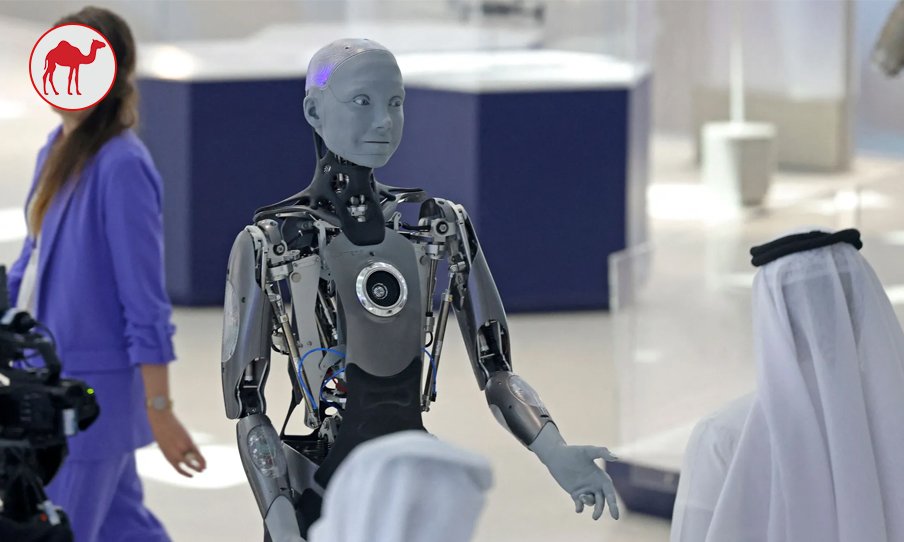How Saudi Arabia Is Becoming a Hub for AI and Robotics

Not long ago, the idea of Saudi Arabia becoming a global leader in artificial intelligence (AI) and robotics might have seemed like a far-off dream. When most people think of Saudi Arabia, they picture oil, deserts, and traditional culture. But times are changing, and fast. Today, the Kingdom is not just investing in the future, it’s building it. From smart cities to humanoid robots, Saudi Arabia is quietly but confidently becoming one of the hottest spots for AI and robotics in the world. Let’s dive into how this transformation is happening.
1. Vision 2030: The Master Plan Behind the Revolution
Saudi Arabia’s rise in AI and robotics is no accident, it’s the result of a bold national strategy called Vision 2030. Launched in 2016, this plan aims to reduce the country’s dependence on oil and shift its focus to knowledge, innovation, and technology.
One of the key goals of Vision 2030 is to make Saudi Arabia a global investment powerhouse. To do that, the government is pouring billions into future-focused sectors like AI, robotics, biotech, and green energy. It’s not just about catching up, it’s about leading the way.
This vision has already led to the creation of the Saudi Data and AI Authority (SDAIA), which plays a big role in setting national strategies, attracting tech talent, and building digital infrastructure. In short, Vision 2030 isn’t just a document. It’s a driving force.
2. NEOM: The City of the Future, Built Today
Imagine a city with flying taxis, AI-powered health services, and robots as assistants. That’s NEOM, a $500 billion mega-city project rising in the northwest of Saudi Arabia.
At the heart of NEOM is The Line, a 170-km-long linear city with no roads or cars, powered entirely by renewable energy. This city is being designed from scratch, with AI and robotics deeply embedded in its DNA.
NEOM is also home to Oxagon, which will be the world’s largest floating industrial complex, focusing on advanced robotics and manufacturing technologies. In NEOM, AI isn’t an add-on, it’s the foundation.
3. Sophia the Robot: A Saudi Citizen Making Global Headlines
One of the most talked-about moments in the world of AI came in 2017, when Sophia, the humanoid robot developed by Hanson Robotics, was granted Saudi citizenship. This made her the first robot in history to receive nationality.
While it sparked global debates, this move sent a powerful message: Saudi Arabia is serious about being at the forefront of AI innovation.
Sophia is more than a headline. She has appeared on global stages, spoken at conferences, and interacted with world leaders. She’s a symbol of Saudi Arabia’s ambitions and a sign of the Kingdom’s commitment to shaping the future.
4. Heavy Investment in Education and Research
To lead in AI, you need brains behind the machines. That’s why Saudi Arabia is heavily investing in education and research.
The King Abdullah University of Science and Technology (KAUST) and King Saud University are among the top institutions driving AI innovation in the region. These universities offer programs in machine learning, data science, robotics, and more, preparing the next generation of tech leaders.
Moreover, Saudi Arabia has partnered with top global universities and tech companies to launch joint AI projects, research centers, and exchange programs. The goal? To make sure Saudi students and researchers are not just consumers of technology, but creators of it.
5. Government Support and Global Partnerships
One of the biggest reasons Saudi Arabia is gaining attention in the tech world is its strong government support and willingness to collaborate globally.
In 2020, Saudi Arabia hosted the Global AI Summit, bringing together experts from over 90 countries. It was a clear message to the world: Saudi Arabia isn’t watching the AI revolution from the sidelines, it’s in the driver’s seat.
Since then, several partnerships have been signed with tech giants like Google Cloud, IBM, Huawei, and Alibaba. These collaborations are helping build the Kingdom’s digital infrastructure and train its workforce.
6. AI in Everyday Life: Healthcare, Finance, and Beyond
AI in Saudi Arabia is not just limited to robots or smart cities. It’s being used in everyday sectors that affect people’s lives.
In healthcare, AI is being used to detect diseases early, assist in surgeries, and manage patient data more efficiently. During the COVID-19 pandemic, AI tools were used for contact tracing and vaccine rollout.
In finance, banks are using AI for fraud detection, customer service chatbots, and risk analysis.
Even in transport, smart traffic systems and autonomous vehicles are starting to take shape. Slowly but surely, AI is becoming part of daily life in Saudi Arabia.
Saudi Arabia is rewriting its story, from a desert kingdom known for oil to a digital powerhouse known for innovation. Through massive investments, futuristic cities, educational reforms, and global partnerships, the Kingdom is positioning itself as a rising hub for AI and robotics.
It’s still early days, but the foundations are strong, and the ambition is clear. Whether you’re a student, a tech lover, or someone curious about where the future is heading—keep an eye on Saudi Arabia. Because what’s happening there is more than change—it’s a transformation.


